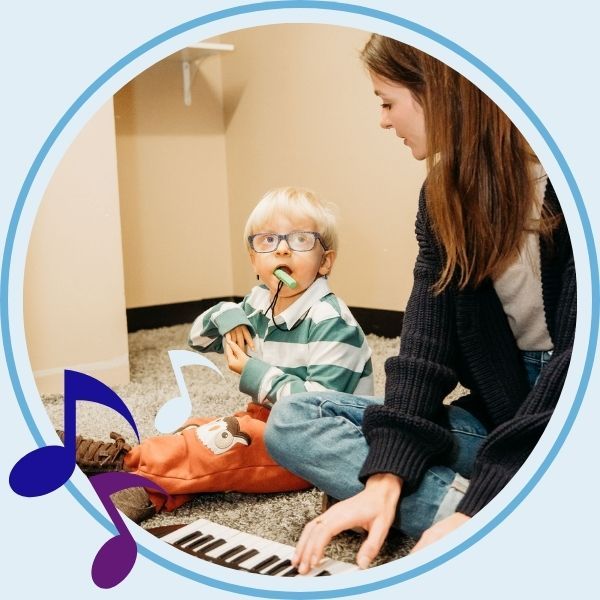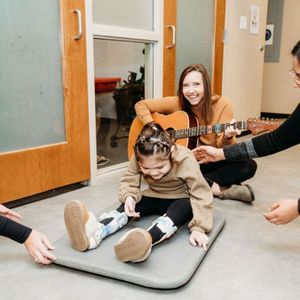Research & Evidence
The Science Behind the Harmony: Evidence-Based Music Therapy at Elevate
Discover how clinical research and neuroscience guide our transformative and personalized music therapy services. At Elevate Music Therapy, we are dedicated to providing care that is not only compassionate but also scientifically grounded.

What is Evidence-Based Music Therapy?
Evidence-based music therapy is a clinical approach that integrates three key components: the best available research, the therapist's clinical expertise, and the client's unique values and preferences. This commitment to evidence-based practice means we don’t just hope for positive outcomes—we build a structured, intentional path toward achieving them. Our Board Certified Music Therapists continually engage with the latest studies to ensure the interventions used in every session are effective, relevant, and tailored to support your loved one’s specific goals.
The Neuroscience of Music & Its Therapeutic Impact
Music is one of the few activities that stimulates the entire brain at once. This whole-brain engagement is why it's such a powerful therapeutic tool. When we engage in musical activities, we are activating areas responsible for motor skills, emotions, language, memory, and executive function. This process leverages neuroplasticity, the brain’s incredible ability to reorganize itself by forming new neural connections. For example, the brain’s response to rhythm can be harnessed to improve gait and motor coordination, while melody and harmony can help process emotions and facilitate communication in non-verbal individuals. By using targeted musical interventions, we can help build and strengthen these pathways.
Research Highlights: Music Therapy in Practice
A robust body of research validates the effectiveness of music therapy across various populations and conditions:

Autism Spectrum Disorder
Studies consistently show that the structured, predictable, and motivating nature of music can improve social skills, enhance communication (both verbal and non-verbal), and support emotional regulation in individuals with ASD.

Developmental Delays
Research indicates that music therapy provides a stimulating environment to target cognitive, motor, and communication skills through playful and interactive musical activities, helping children acquire new abilities in an enjoyable way.

Emotional Regulation
For individuals managing anxiety, trauma, or depression, research highlights music therapy as a powerful tool for processing emotions, reducing stress, and developing healthy coping strategies in a safe, non-confrontational setting.

Motor Skills
For individuals with conditions like Cerebral Palsy or those recovering from brain injury, rhythmic auditory stimulation (RAS) is a well-researched technique that uses the brain's response to rhythm to improve coordination, balance, and movement.

Our Commitment to Informed Practice
Our practice is informed by leading research and standards from reputable organizations, including:
The American Music Therapy Association (AMTA)
The Certification Board for Music Therapists (CBMT)
Peer-reviewed academic journals in music therapy, neuroscience, and psychology.
Our team is committed to ongoing professional development, ensuring we are always integrating the most current and effective techniques into our work.

How We Integrate Research at Elevate
From the very first meeting, research informs our process. It guides our assessments, helps us establish meaningful and measurable goals, and dictates which specific interventions—like therapeutic singing, instrument play, or improvisation—will be most effective for achieving those goals. This ensures that every session is purposeful and builds toward lasting positive change.
Begin Your Evidence-Based Therapy Journey
Ready to learn more about how our research-informed approach can support you or your loved one? Contact us today to schedule a consultation.
